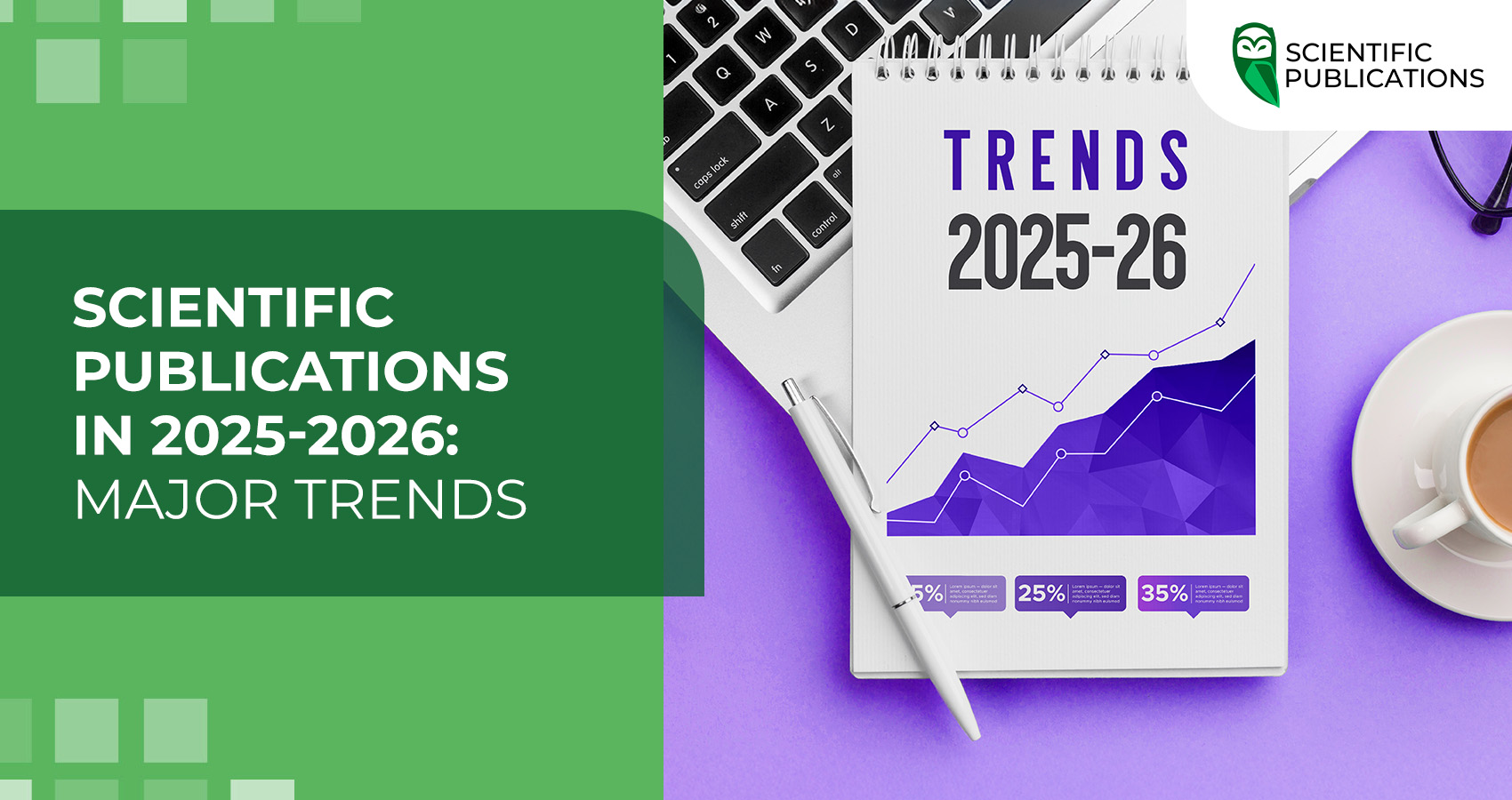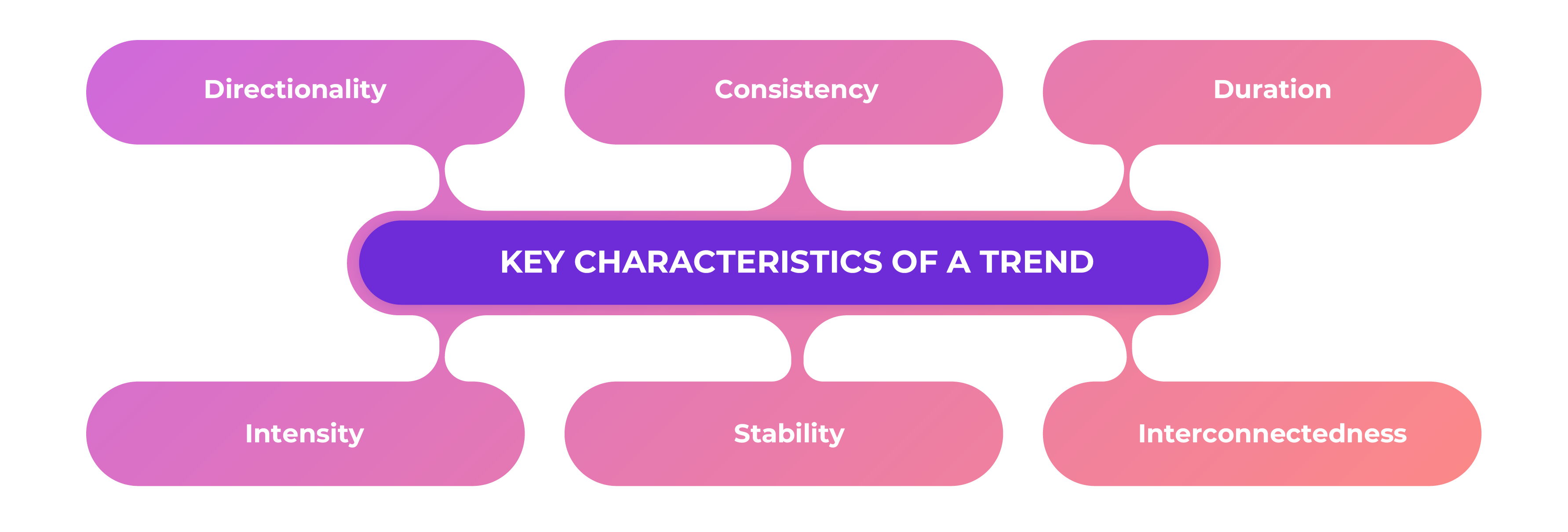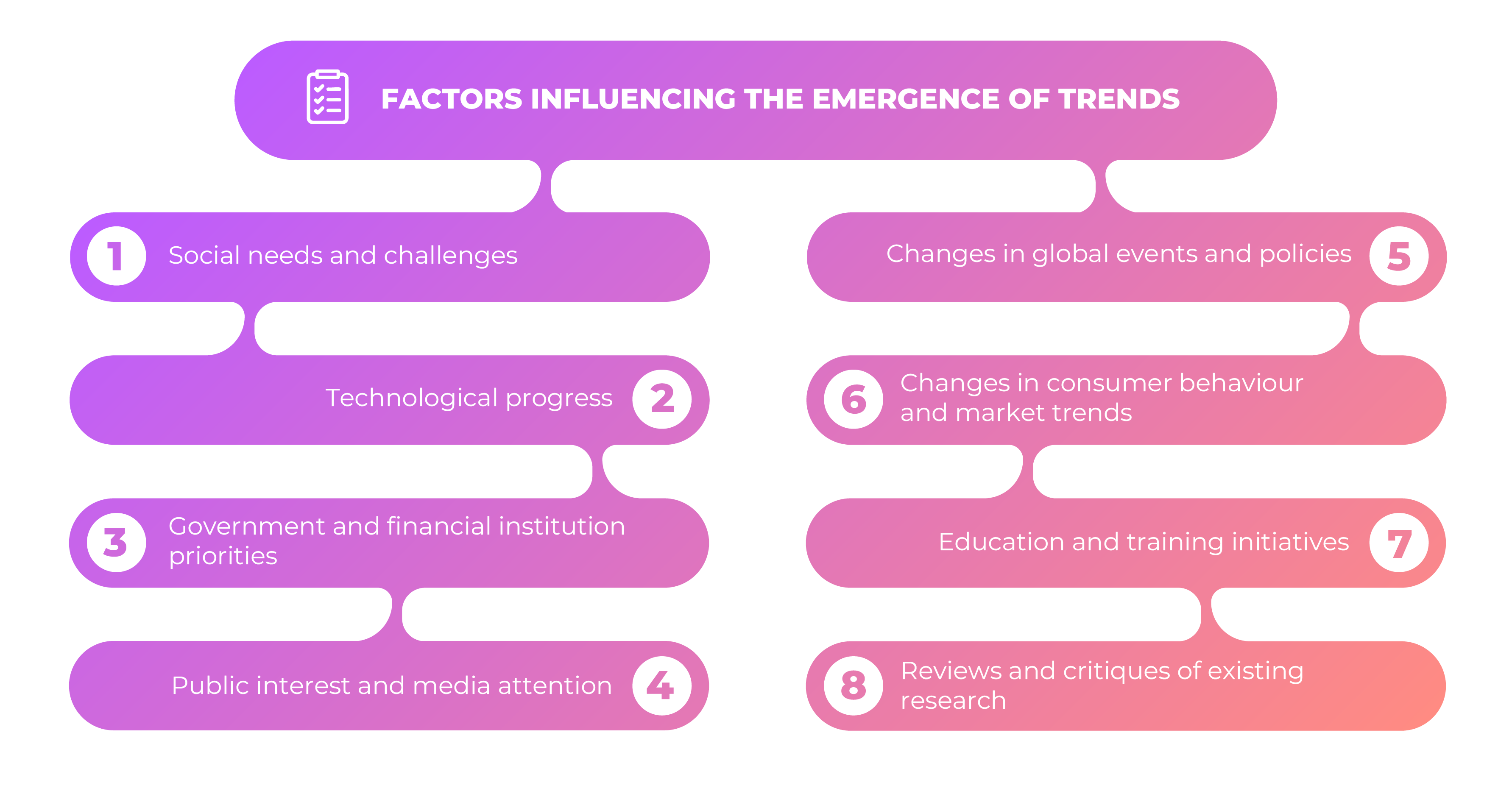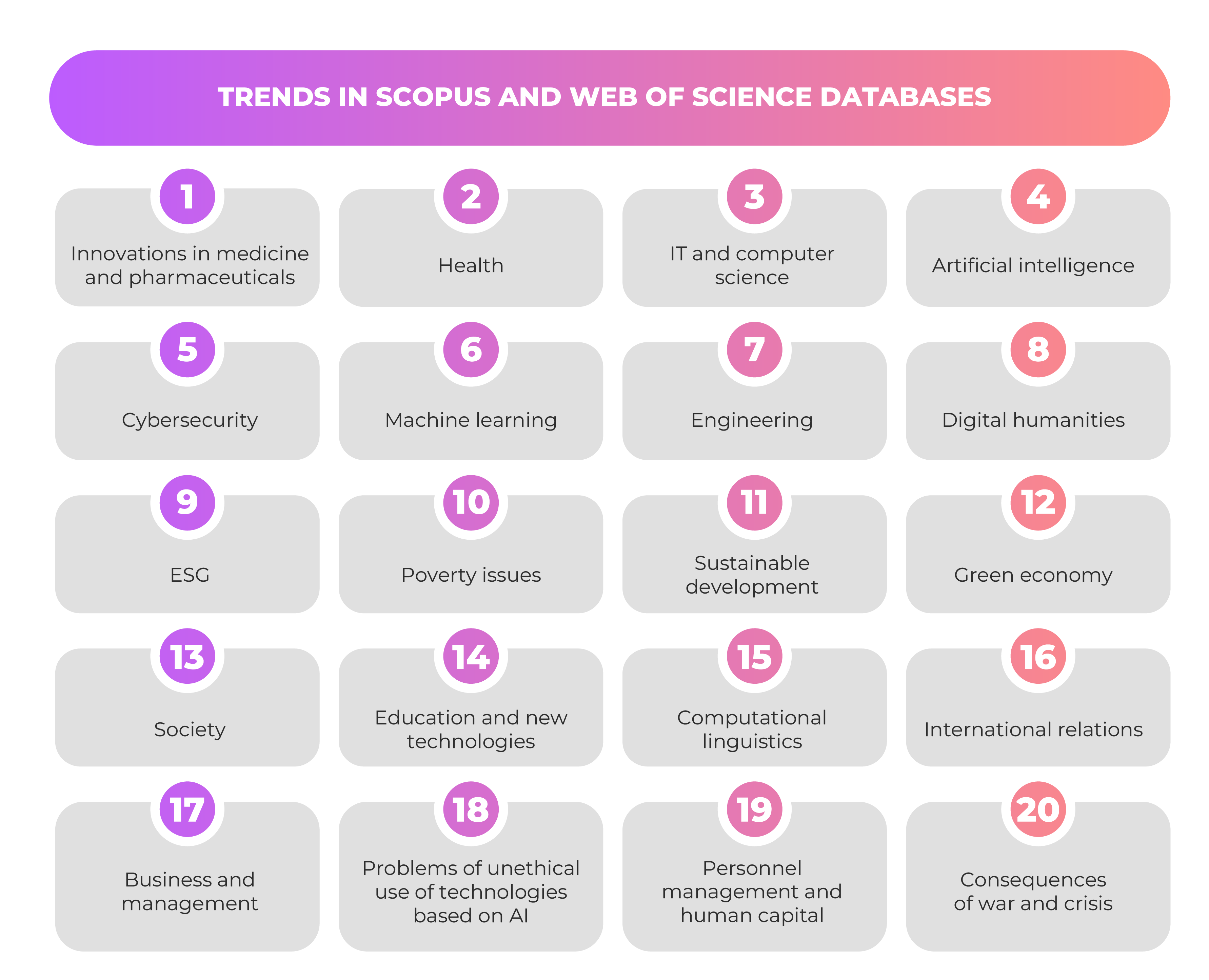At least once in their lives, every researcher faces difficulties when choosing a topic and research area. It is important to choose a relevant topic that will be of interest to the scientific community, as this will determine the author's recognition. Today we have prepared a list of research areas that will be relevant and popular in 2025-2026.

The concept of “trend” applies to every sphere of human life. Trends are also present in science.
Trends in science
A trend in science is a prevailing direction or movement in a particular field or discipline, characterised by a concentration of research efforts, funding, and attention.
A trend is important because it helps researchers identify key areas, prioritise tasks, and make informed decisions about the optimal use of time and resources. Following current trends allows researchers to conduct research that not only meets high scientific standards, but also has significant social and economic significance, increasing their contribution to the development of science and society as a whole.

Characteristics allow us to analyse and identify trends, as well as to make informed decisions on how to adapt to the most important ones and influence their formation.
Understanding the characteristics of trends plays an important role in the work of scientists, as it allows them to anticipate and predict future events. By analysing the direction and dynamics of trends, one can predict changes and make strategic decisions. Determining the intensity and scale of trends also helps to set priorities and optimally allocate resources to achieve effective results.
Benefits of publishing current research
| Relevance and impact | Focusing on scientific trends allows you to investigate significant problems, propose practical solutions and contribute to the overall progress of your chosen field of study. |
| Potential for discovery | Emerging trend-setting problems offer opportunities for breakthrough research, the creation of new knowledge and the development of theories. |
| Citation | Publications that align with current trends receive more citations, increasing the author's scholarly influence. |
| Career advancement and competitiveness | Working on current issues increases a researcher's visibility and promotes professional advancement. Being trend-oriented allows one to remain competitive in an environment with a large number of researchers. |
| Professional development | Working on topical issues promotes continuous improvement and the acquisition of new competences in research activities. |
| Funding and support | Popular fields often receive financial support from government bodies and grant organisations, which increases the chances of securing resources for research. |
| Collaboration and networking with other scientists | Topical topics attract more researchers, which makes it easier to find partners, network with scientists, and strengthen ties. |
Publishing research papers in scientific journals is one of the most important stages of a modern scientist's career. In addition, research that is in line with current trends is more likely to be recognised.

Popular and relevant research areas in 2025-2026
Some of the most promising research areas that can dominate the scientific environment:
- Artificial intelligence and machine learning
- Sustainable development and renewable energy sources
- Biotechnology and engineering
- Cybersecurity and data privacy
- Advances in healthcare and medicine.

General trends in publications in Scopus and Web of Science:
- Growth of interdisciplinary research.
- Increased emphasis on open science and open access.
- Greater attention to the quality and rigour of research.
- Increased use of digital tools and platforms.
- Increased importance of reproducibility and transparency of research.
- Focus on equity, diversity and inclusion in publishing.
Research articles on topical issues have a greater chance of success and high citation as they address contemporary social challenges, have the potential for significant impact, and can attract media attention. In addition, such research facilitates cooperation, strengthens scientific ties, provides data for informed decisions, and often has practical implications and potential for innovation.
Do you need help publishing an article in international journals and in Scopus and Web of Science databases? Contact “Scientific Publications”. Our experts with many years of experience will accompany you at every stage of the process and provide post-publication support. Together to new discoveries and achievements!





